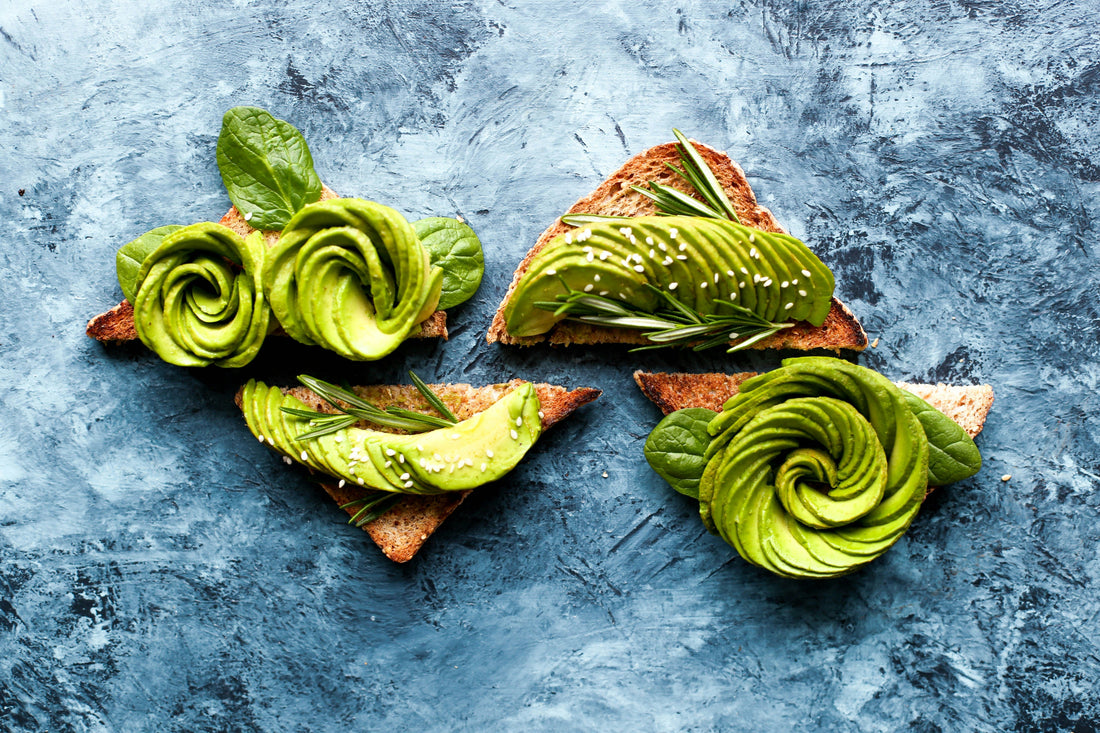A sound mind only exists with a healthy gut. Believe it or not, mental health is dictated (almost) entirely by our gut's well-being. Healthy bowel movements are one of the top indicators of good gut health, and your toilet habits can tell you a lot about what you need to improve to feel your best digestively.
Many Australians might not readily associate bowel movements with good gut health, but a study showed a 9% increase in cases of severe gut illness recorded among Australians beginning in the 1990s, and that trend appears to be continuing among young and middle-aged adults.
Many things can be done when considering how to improve gut health. Aside from knowing more about good gut health, you can improve your diet, monitor bowel movements, and take appropriate supplements to ease and support digestion.
Read on as we share our tips on achieving and maintaining good gut health.
Introduction to Bowel & Gut Health
What is the bowel?
The bowels are made up of the small and large intestines and are responsible for absorbing nutrients from what we eat and drink and excreting food waste. The upper end of these intestines connects to the stomach and its lower end to the rectum and anus. The bowels and the organs they attach to partly comprise the gastrointestinal tract. Stress levels, processed foods etc., negatively impact our immune system via our gut. An unhealthy gut can affect sleep, weight gain, fatigue, skin irritations, and migraines. It is a vicious cycle.
How does a good gut operate?
The gut starts its work the moment food enters the mouth. As you chew food, saliva is secreted to help break down carbohydrates. Swallowed food then moves through the oesophagus and delivers it to the stomach, where mechanisms in the gastrointestinal tract ensure that food continues on this path rather than travels back up to the throat.
The stomach, small intestines, pancreas, and liver all contribute to the subsequent phases of food breakdown. Different organ enzymes and gastric juices combine to turn solid food into new substances whose nutrients can be extracted for the benefit of the whole body. As the stomach works to help the bowel absorb nutrients, food waste is simultaneously segregated from usable food materials.
Anything from food that the body doesn't need ends up in the large intestine. What is now food waste is stored in the rectum, and this stage in the digestion process is what gives you the urge to use the toilet. Once a person feels the need to relieve themselves, food waste moves through the rectum and colon, and with that, the digestive process is complete. If your body performs its digestive functions properly and this process is uninterrupted, you'll have little trouble figuring out how to improve gut health.
How can you tell if you have a healthy gut?
Having good gut health means you're not experiencing any pain or discomfort in your abdominal area while eating, in-between meals, or during your trips to the toilet. However, pain-free digestion and bowel movement is not the only method of checking good gut health.
Aside from monitoring for pain, you can consider a stool test. A stool test is a visible indicator of good gut health, and it analyses your bowels based on stool qualities of texture, size, colour, and firmness. A combination of these qualities allows doctors to categorise your stool into appropriate types, so you can be advised on improving your gut health, speak with your doctor if you think a stool test is appropriate for you.
You can learn more about the different types of stool and what these indicate about your gut health here. Types 1,2,5,6, and 7 may be indicators of poor gut health or serious digestive conditions and if your stool is categorised as one of these, it's worth visiting your doctor for closer examination.
Other indicators of good gut health are the frequency of your toilet visits, the number of faeces produced each time, odour, and how easily you pass stool.
Signs that you may have poor gut health include:
• You experience frequent bowel movements, or your toilet visits have become more frequent without an identifiable cause.
• You cannot pass enough stool (i.e., a bowel movement does not leave your gut feeling sufficiently emptied).
• Your faeces' odour has changed.
• Excessive force is needed for you to pass the bowels.
Why is good gut health important?
Good gut health is essential as the digestive system is where our body gets the fuel and nutrients it needs. These nutrients are distributed to the brain, heart, muscles, skin, hair, bones and all other organs. So, without a gut working hard to collect and distribute these nutrients, our bodies wouldn't be working the way they should. Without good gut health, other bodily processes and functions would be impaired, leaving us feeling ill, frail, tired, or downright sick!
Learning to improve gut health is equivalent to caring for your whole body. The digestive process involves the interconnection between good gut health and overall health. Fortunately, there are many things you can do when considering how to improve gut health. You can begin by eating the right food, getting ample exercise, and including supplements for good gut health in your daily health regimen.
Improving Your Gut Health
What can I do to improve gut health?
Food & Diet
Regarding diet, foods rich in fibre, like fruits and vegetables, are good for digestion as they help move food along the digestive tract smoothly. Meanwhile, fermented foods which contain probiotics maintain the balance of digestive bacteria. Keeping hydrated is also essential as being well-hydrated helps the bowels move quickly and allows for flushing toxins from the body at an ample pace.
Lifestyle Factors
Managing stress, exercising daily, and sleeping for at least six hours nightly are also ingredients to good gut health. Doing so maintains your digestive system's efficient functioning, prevents you from developing digestive illnesses, and reduces gastrointestinal discomfort. It's also good practice to visit the toilet when you have the urge to pass a stool, as ignoring this sensation may leave waste in the colon for too long, causing it to harden and making it more difficult for you to pass a motion.
Another step for improving gut health is to use antibiotics as strictly prescribed. We sometimes forget to consider how to maintain good intestinal bacteria, and the flora in our stomachs can be compromised with the incorrect use of antibiotics.
What are the best foods for the gut?
Different whole foods serve different purposes for improving gut health and when consumed together, a balanced diet gives you the best chance at achieving a healthy digestive system. When consuming food for optimum digestion, it is important to prioritise fibre-rich foods, anti-inflammatory foods, immune-boosting foods and hydration.
Fibre-rich foods:
• Leafy vegetables
• Whole grains
Lean proteins for digestion:
• Chicken
• Beef
• Lamb
• Fish
Anti-inflammatory foods:
• Tomatoes
• Olive oil
• Green leafy vegetables
Immune boosting foods
• Whole foods
• Fermented foods
• Fruit
• Vegetables
What are the best supplements to promote good gut health?
When paired with a well-rounded diet, mineral and vitamin supplements can help improve gut health. Here are some options you can consider to include in your gut health regimen:
Zinc & Gut Health
The benefits of zinc for good gut health:
Zinc is a mineral that supports healthy digestive function. As the body cannot produce zinc naturally, it must be consumed through external sources. Zinc can be consumed from food and it also conveniently comes in the form of daily supplements. No matter how you consume it, zinc is essential in healthy digestive function.
Where can zinc be found?
Zinc is abundant and can be found in a variety of foods. It is present in both plant and animal-based foods, which is good news for vegetarians, vegans or anyone who's chosen to abstain from animal-based foods. Some examples of foods rich in zinc are the following:
• Seafood like oysters, fish, crabs, and lobsters
• Animal products such as beef, pork, and chicken
• Baked beans, chickpeas, kidney beans, peas, pumpkin seeds, cashews, and almonds
• Bread, cereals, and oatmeal
• Dairy such as milk, cheese, and yogurt
When paying attention to your zinc intake, one of the things that you need to watch out for is phytates. It's a substance that's also found in food, and limits zinc absorption in the body. Phytates are mostly found in bread, cereals, and legumes.
How much zinc should adults consume?
The Ministry of Health Australia recommends for optimum health benefits, men consume 14 mg of zinc a day, while women should consume 8 milligrams a day. For those who get their zinc from plant sources, it should be noted that you will need an additional 50% of the recommended daily intake as zinc absorption is higher in animal-based foods compared to its plant-based counterparts. Learn more about the benefits of zinc here.
Probiotics & Gut Health
What are probiotics and their role in improving gut health?
Probiotics contain live microorganisms that support healthy bowel function. These microorganisms benefit people when given in adequate amounts. Probiotics are specially formulated to contain strains and species of live microorganisms. Common types of probiotic bacteria are Lactobacillus, Bifidobacterium, and Saccharomyces boulardii, and you'll often find them in probiotic food and supplements. These bacterial strains help achieve good gut health by interacting with the bacteria naturally found inside the digestive tract.
There are many benefits to probiotics - these include:
• Supporting and restoring good intestinal flora, especially during and after antibiotic use
• Relieving digestive discomfort
• Maintaining healthy gastrointestinal system health and function
Where can probiotics be found?
There are different foods that contain probiotics. Most fermented foods have live microorganisms, while others use microorganisms as part of their processing. Foods like kimchi, cheese, miso, some bread varieties, and yoghurt are good probiotic sources. Probiotic supplements can also be helpful in your mission to learn about how to improve gut health.
How much probiotics should adults consume?
A study has mentioned that the dosage of probiotics should be at least five billion colony-forming units or CFU per day. This can increase depending on the person's health and the condition it is trying to address.
Curcumin & Gut Health
What is curcumin and its benefits to gut health?
Curcumin supports healthy digestive function. It is one of the active ingredients of turmeric, which is part of the ginger family. Turmeric's recognisable yellow tint is caused by the abundant presence of curcumin. In Traditional Chinese Medicine (TCM), curcumin has been used to lessen abdominal discomfort and as a digestive stimulant to improve gut function. It's also noted that in these traditional medicinal systems, curcumin aids in the alleviation of different gastrointestinal illnesses. Today, this substance has been found to be beneficial for gut health by maintaining healthy digestion and supporting healthy digestive system function.
Where can curcumin be found?
Curcumin can be sourced from turmeric which has plenty of uses. It can be added to food as a spice, consumed as teas, added in other beverages, and used to add colour to other foods. It is also found in capsules and powder form and is added as a supplement to daily health regimens with the goal of answering the question of how to improve gut health.
How much curcumin should adults consume?
The Joint United Nations and World Health Organisation Expert Committee on Food Additives and European Food Safety Authority have reported that the allowable daily intake for curcumin is 0-3 mg per kg of body weight. Similar to other medications and supplements, consult your doctor or medical practitioners to ensure that your dosage is correct and does not have any effects on drugs you're currently taking.
Conclusion
Now that you have all the information required for a healthy gut, you can make informed dietary decisions and give yourself the healthiest gut possible. Often, diet alone isn't enough and supplements can be a great option in line with a healthy diet. Take Vitable's vitamin quiz to discover which vitamins are going to be best for you.
Find out more about other areas that the above supplements can help you with:
Zinc | Probiotics SB | Daily Probiotics | Curcumin
*Always read the label. Follow the directions for use. If symptoms persist, talk to your health professional. Vitamin and/or mineral supplements should not replace a balanced diet.






